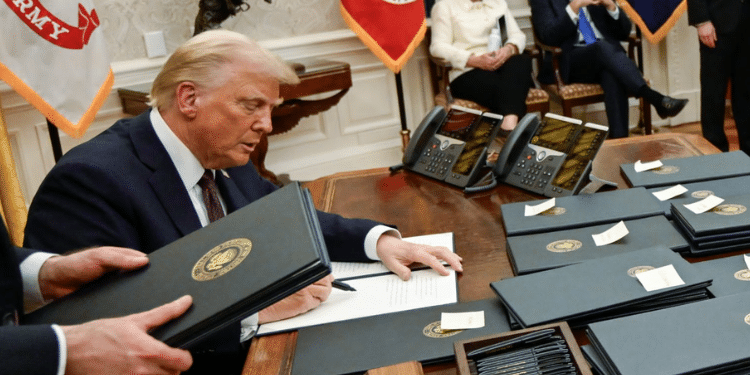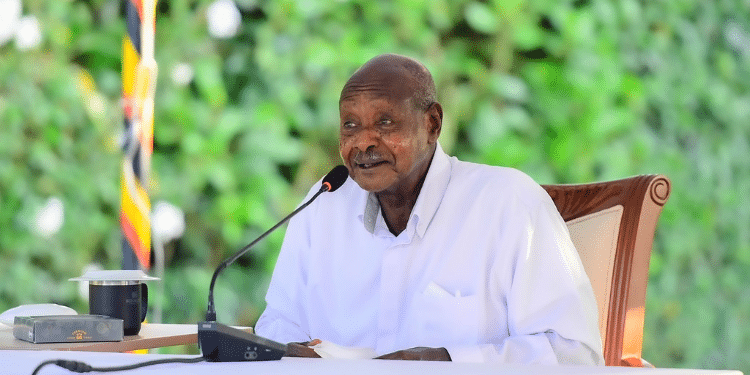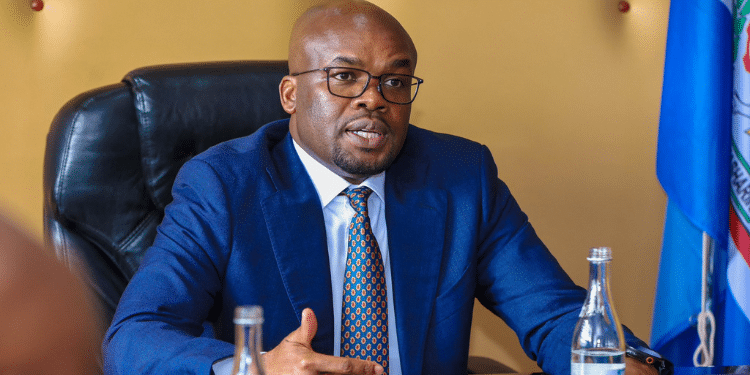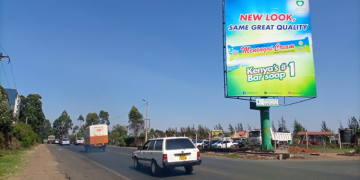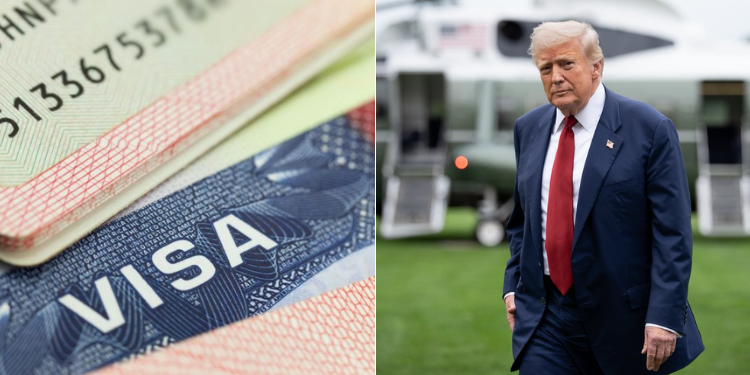President Donald Trump administration’s proposed changes to student and foreign workers’ visa regulations are poised to significantly impact international students and skilled immigrants, including many Kenyans seeking higher education and employment in the United States.
The new rules, which this month cleared a final White House review, would impose fixed time limits on F-1 student and J-1 exchange visitor visas, replacing the current system that allows visa holders to remain in the country for the entire duration of their academic program.
Currently, F-1 and J-1 visa holders can legally stay in the U.S. as long as they are enrolled and making progress in their studies or internships.
However, the Department of Homeland Security (DHS) has proposed a regulation that would require students to maintain their legal status within a fixed period and apply for renewals before their academic programs end.
The rule package (RIN: 1653-AA95), submitted to the White House Office of Information and Regulatory Affairs (OIRA) on June 27, completed review in early August and is expected to be published in the Federal Register soon. This will trigger a public comment period before a final rule is implemented.
How Kenyan students could be affected as the White House approves student visa changes
If enacted, the new regulation could introduce procedural disruptions, forcing many students to apply for visa extensions mid-program — a process that advocates warn may cause delays, interruptions to lawful status, and complications in work authorization linked to their studies.
The proposal mirrors a previous 2020 plan under the Trump administration that suggested limiting student visas to two or four years based on the field of study or country of origin.
That earlier rule was met with widespread criticism from education groups and was ultimately withdrawn by the Biden administration. Analysts now expect the new regulation to closely resemble the former proposal.
Under the earlier plan, even students who graduated within four years would have been required to file for extensions to participate in Optional Practical Training (OPT), the program that allows graduates to gain work experience in their field.
This could increase the financial and administrative burden on students, with additional government fees and heightened risk of bureaucratic errors.
Stakeholders also warn that the surge in extension applications — estimated at an additional 300,000 annually under the 2020 proposal — could overwhelm U.S. Citizenship and Immigration Services (USCIS) officers, causing longer processing times and more uncertainty.
Also Read: US Embassy Issues Notice to Kenyans on Skipping Classes While on Student Visas
The visa changes come amid a broader decline in international student interest in the United States, which has seen enrollments drop to their lowest levels since the height of the COVID-19 pandemic.
Data from the Student and Exchange Visitor Information System (SEVIS) and the U.S. State Department indicate a projected 30 to 40 percent decline in new international enrollments for the fall semester, attributed partly to visa restrictions and pandemic-related travel bans.
This drop could have far-reaching consequences for American colleges and universities, many of which rely heavily on international students who often pay full tuition.
According to NAFSA: Association of International Educators, this decline could cost the U.S. economy as much as $7 billion, while also reducing enrollment numbers and revenues for higher education institutions.
Broader Immigration Reforms targeting H-1B visa holders
Alongside the student visa rule, the White House has also approved a separate DHS proposal to reform the H-1B visa lottery system, widely used by tech firms and other industries to hire highly skilled foreign workers.
Also Read: US Visa Interview Rules to Change in September – What You Should Know
The H-1B visa programme lets employers temporarily hire foreign workers in specialty fields. About two-thirds work in computer-related jobs, according to the Congressional Research Service. Most H-1B visa holders come from India, followed by China.
The current random lottery would be replaced by a weighted selection process prioritizing applicants based on criteria such as wage levels and education.
This reform aims to better align H-1B visa issuance with economic priorities, although specific details of the new system are yet to be fully disclosed.
The DHS plans to publish the proposed student visa rule in the Federal Register soon, initiating a formal public comment period. After this, the agency will review feedback before submitting the final rule for another review stage prior to implementation.
Follow our WhatsApp Channel and X Account for real-time news updates.
